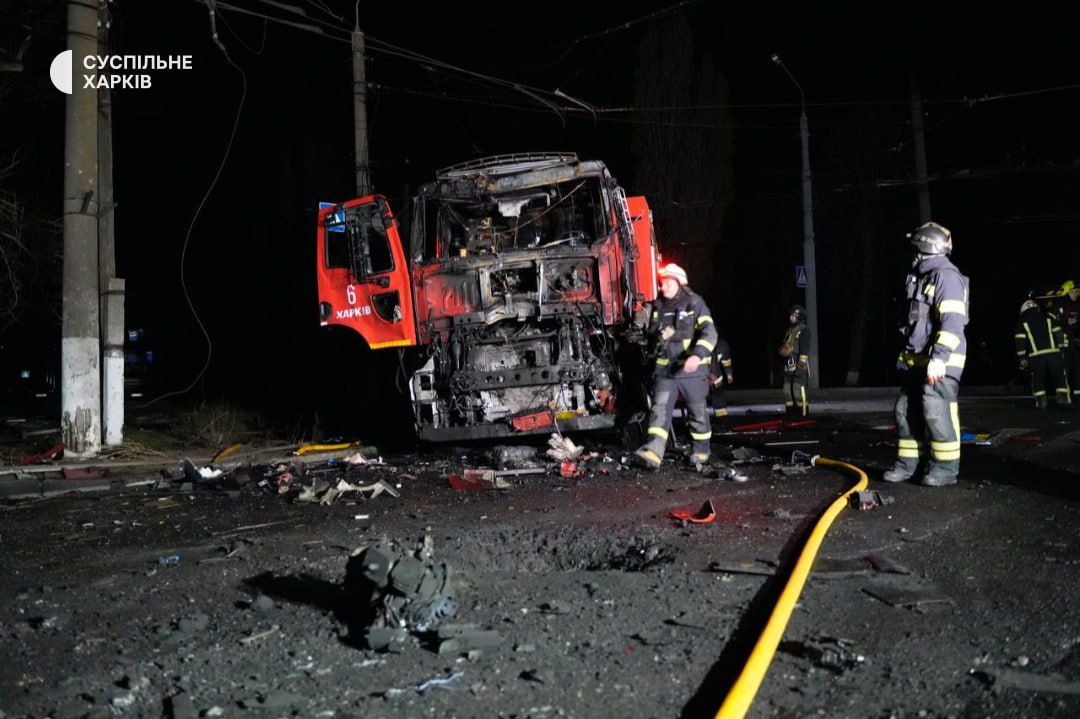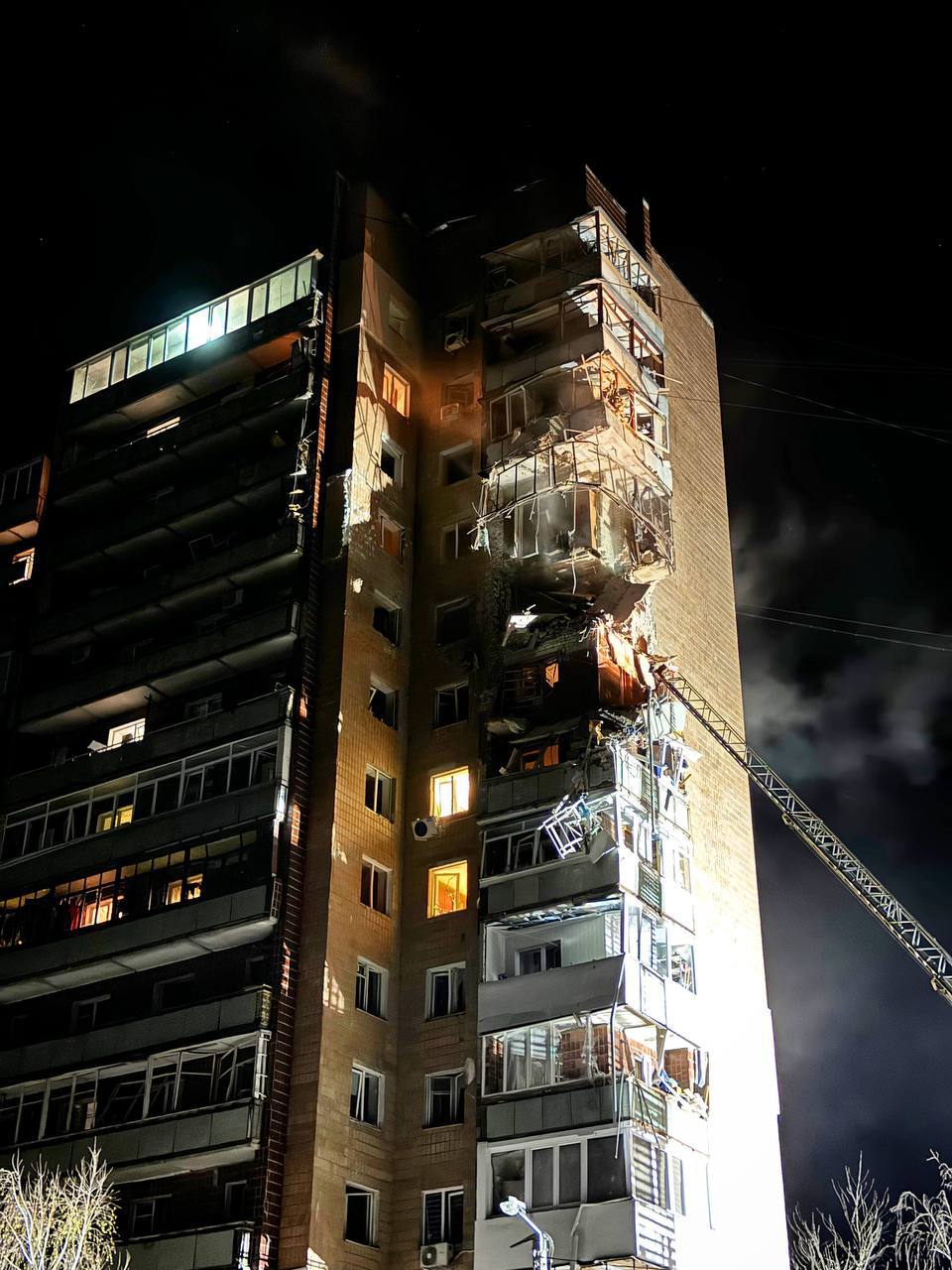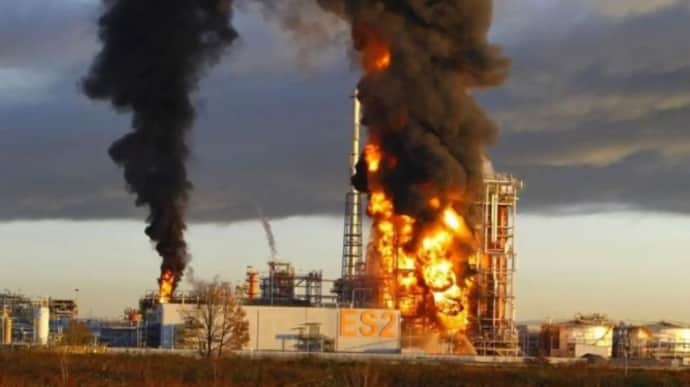Daily Flyer - April 4, 2024
A voice of Ukraine to the West

Four killed, twelve injured in Russian attacks on Kharkiv

In the early hours of April 4, Kharkiv Oblast Governor Oleh Syniehubov announced via Telegram that Russian strikes on the city of Kharkiv had tragically claimed the lives of at least four individuals and left 12 others injured.
Among the casualties were three dedicated Emergency Service workers who were valiantly engaged in rescue efforts following an earlier Russian attack. Additionally, one civilian, identified as a 69-year-old woman by local police, lost her life in the onslaught.
The drone strikes, which occurred at approximately 1 a.m. local time, inflicted damage to several residences and a 14-story high-rise building. Resultantly, a 33-year-old man and a 71-year-old woman sustained injuries.
The devastation intensified when, at 1:55 a.m., two more drones descended upon the city, claiming the lives of the three aforementioned Emergency Response workers who had responded to the scene following the initial assault.
Among the injured were an Emergency Service worker, a policeman, and a nurse, all of whom are currently receiving essential medical care in the aftermath of these harrowing events.

The attacks on Kharkiv Oblast inflicted significant damage, with three high-rise buildings, three firetrucks, a hospital building, and two ambulances among the casualties.
Governor Syniehubov reported that a total of 15 Russian drones were deployed across the Oblast, with Ukrainian air defense successfully intercepting and downing some of them, preventing further devastation.
In addition to the material damage, separate attacks on April 3rd resulted in injuries to a 55-year-old woman and a 70-year-old man, further highlighting the toll on civilian lives in the region.
The relentless assaults on settlements in Ukraine's Kharkiv Oblast underscore the daily threat faced by residents, compounded by their proximity to the border with Russia. These attacks perpetuate a cycle of fear and destruction, exacerbating the already dire humanitarian situation in the region.
Russia faces difficulties repairing oil refineries due to US sanctions
According to Reuters, Russian companies are encountering challenges in repairing oil refineries due to Western sanctions, with Ukrainian drone attacks potentially exacerbating the situation. As of March 17, Ukrainian forces had reportedly launched drone strikes targeting Russia's oil industry, successfully hitting 12 Russian oil refineries in multiple regions deep inside Russian territory.
The repair of the gasoline-producing unit at Lukoil PJSC's NORSI plant in Nizhny Novgorod Oblast, which was attacked on March 12, faced difficulties as there was only one company, the American multinational oil engineering company UOP, with the expertise to undertake the repairs. However, UOP had withdrawn from Russia following the full-scale invasion of Ukraine. Consequently, engineers struggled to find spare parts for the repairs, leading to the cessation of the entire unit's operation.
The unit, crucial for converting heavier hydrocarbons into gasoline, has been out of service since January, with uncertainty prevailing over the timeline for repairs due to the lack of expertise in Russia.
The disruption caused by the attacks and repair challenges has led to a 40% reduction in gasoline production at NORSI, the fourth-largest Russian refinery. The situation has been further complicated by Ukrainian drone attacks, which forced Russian refineries to shut down approximately 14% of their capacity in the first quarter, according to Reuters.
Russian Deputy Prime Minister Alexander Novak expressed optimism that the damaged facilities would resume operations within a month or two, as Russian firms endeavor to produce the necessary spare components.
Amid these developments, the Financial Times reported in March that the U.S. cautioned Ukraine against targeting Russian oil refineries, citing concerns about potential repercussions on global oil prices. However, U.S. Secretary of State Antony Blinken clarified on April 2 that Washington had not supported or enabled such strikes by Ukraine beyond its territory.
President Volodymyr Zelensky defended Ukraine's targeting of Russian oil and weapons facilities as a legitimate military strategy, asserting Ukraine's right to employ its own weapons for self-defense.
Ukrainian strikes have taken out at least 10% of Russia's oil refining capacity

According to European Pravda's correspondent from Brussels, citing a NATO official who spoke anonymously, NATO assesses that Ukrainian drone strikes on Russia's oil refining infrastructure have had a significant impact on Russia's fuel market, resulting in additional financial costs for the country.
The source highlighted that Russia notably increased its petrol imports from Belarus in March and implemented a six-month ban on petrol exports to stabilize domestic prices. Furthermore, Moscow has not ruled out augmenting crude oil exports, as its refining capacity may not be sufficient to meet demand.
The NATO official estimated that the strikes have likely disabled over 10% of Russia's refining capacity, possibly exceeding 15%. Depending on the extent of the damage, repairs could necessitate a substantial amount of time and incur significant expenses.
Additionally, the source emphasized that some Ukrainian drone strikes have been executed at distances exceeding 1,000 km, underscoring the scale of the attacks.
The NATO official concluded by suggesting that in the future, an increasing number of Russian energy infrastructure facilities may become vulnerable to potential attacks, which could further impact the Russian economy in this sector.
Ukraine's energy company introduces rolling blackout schedules in 6 oblasts
According to Ukrenergo, Ukraine's national energy company, the dispatch center is compelled to implement temporary measures to curtail power consumption from 18:20 to 22:00 in several oblasts, including Dnipropetrovsk, Donetsk, Zaporizhzhia, Kirovohrad, Poltava, and Sumy.
The reason cited for these restrictions is the inadequacy of generating capacity in the grid to meet consumption demands in these specific regions. Ukrenergo attributed this shortfall to recent large-scale attacks on Ukrainian power plants by Russia.
Furthermore, the company noted that evening consumption in the country is rising due to a sudden cold snap. As a result, the limitations have been imposed to manage the strain on the electricity grid effectively.
Ukrenergo assured that the restrictions are being applied mildly, with regional power distribution companies tasked with evenly distributing available electricity among consumer groups.
Meanwhile, rolling blackouts persist in Kharkiv Oblast and for industrial consumers in the city of Kryvyi Rih.
In light of these circumstances, Ukrenergo issued an appeal for people to use electricity judiciously, emphasizing the importance of conserving energy resources during this challenging period.
Russian attack on New-York in Donetsk Oblast kills 2 people
According to Vadym Filashkin, Head of Donetsk Oblast State Administration, the Russian army launched an assault on the town of New-York in Donetsk Oblast on the evening of April 4th, resulting in the deaths of two individuals and injuring another.
In a statement on Telegram, Filashkin reported that the town endured four airstrikes during the evening. Regrettably, two individuals lost their lives, and one more sustained injuries as a result of the attack. Additionally, numerous private residences sustained damage.
Efforts are currently underway to assess the aftermath of the assault and ascertain the full extent of the damage inflicted on the town of New-York.

